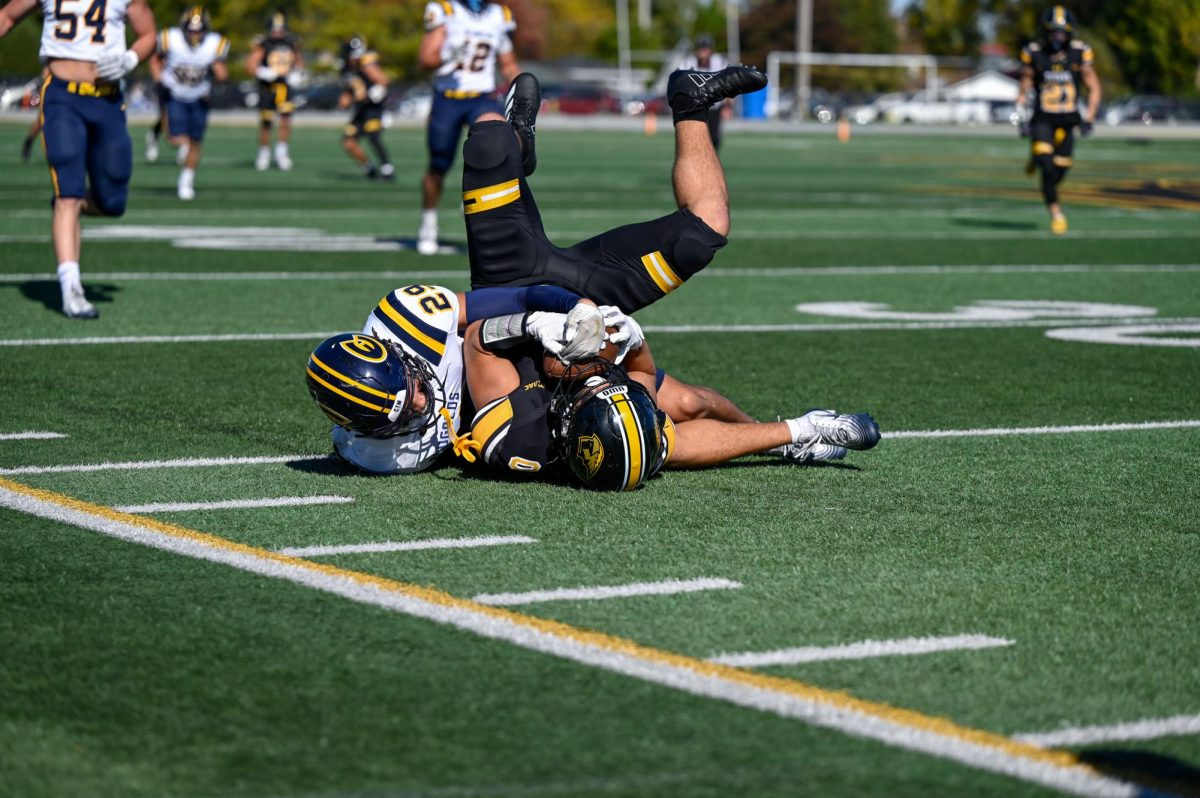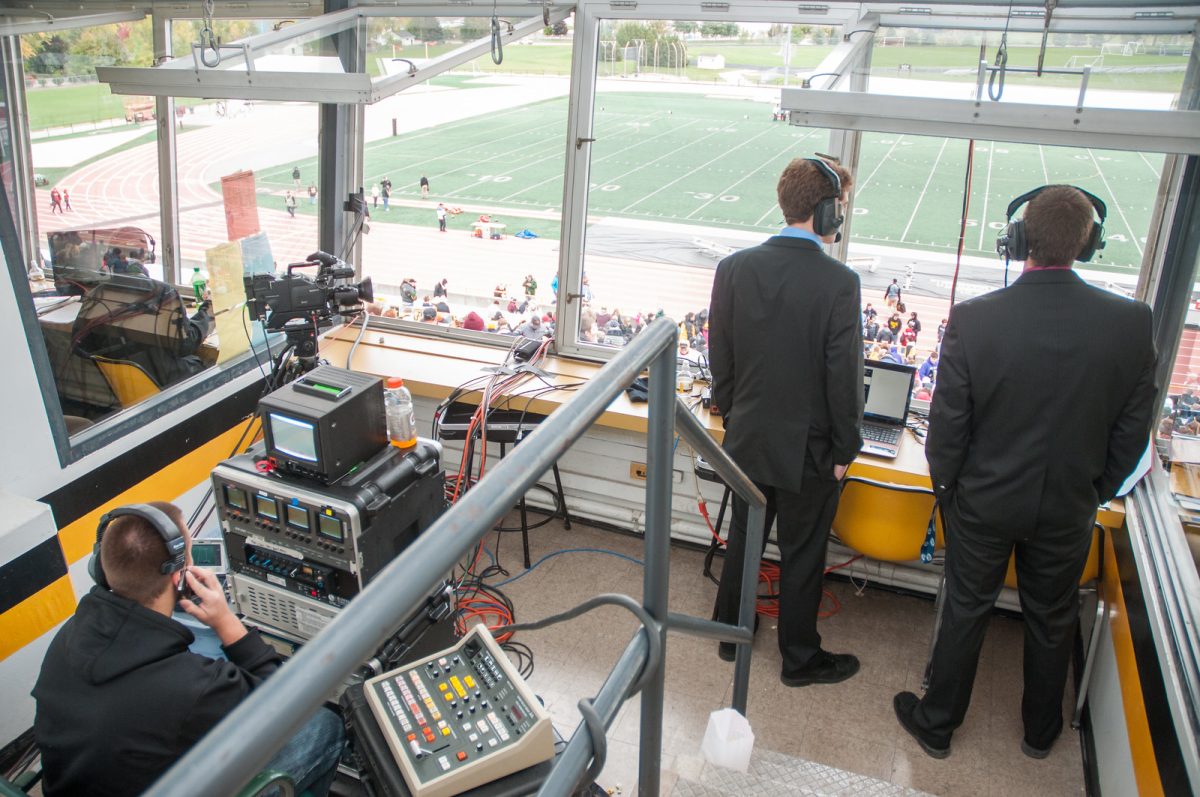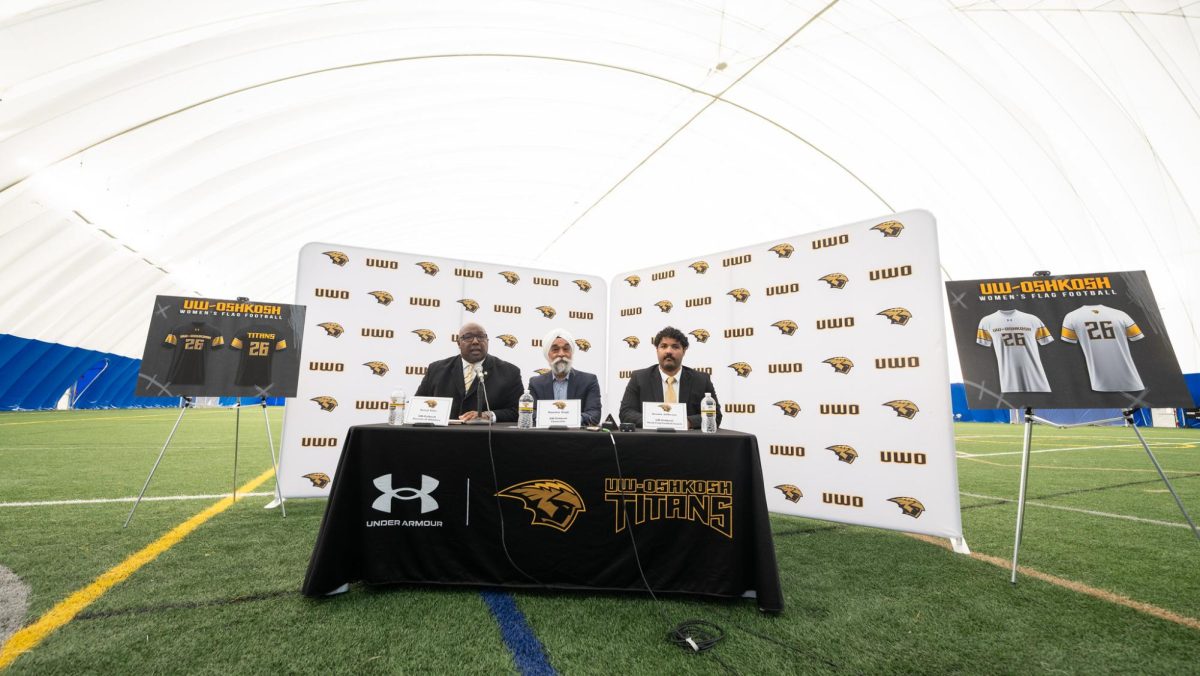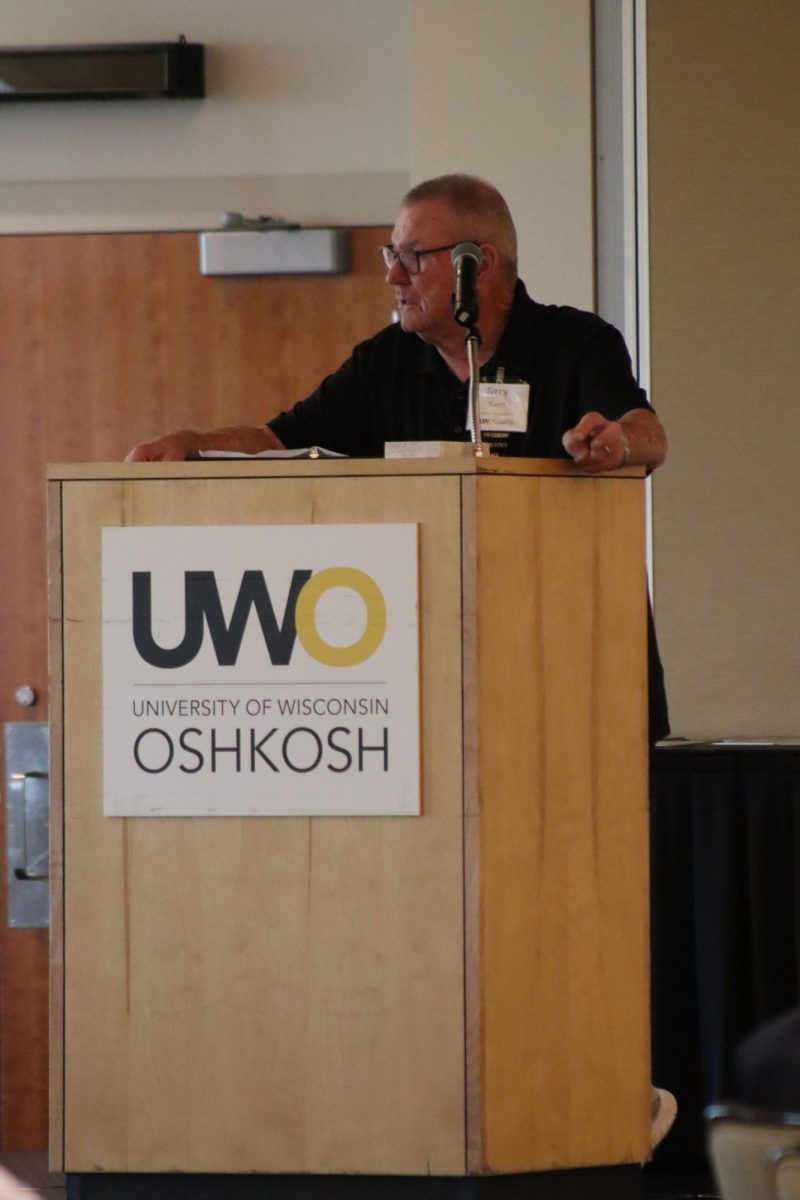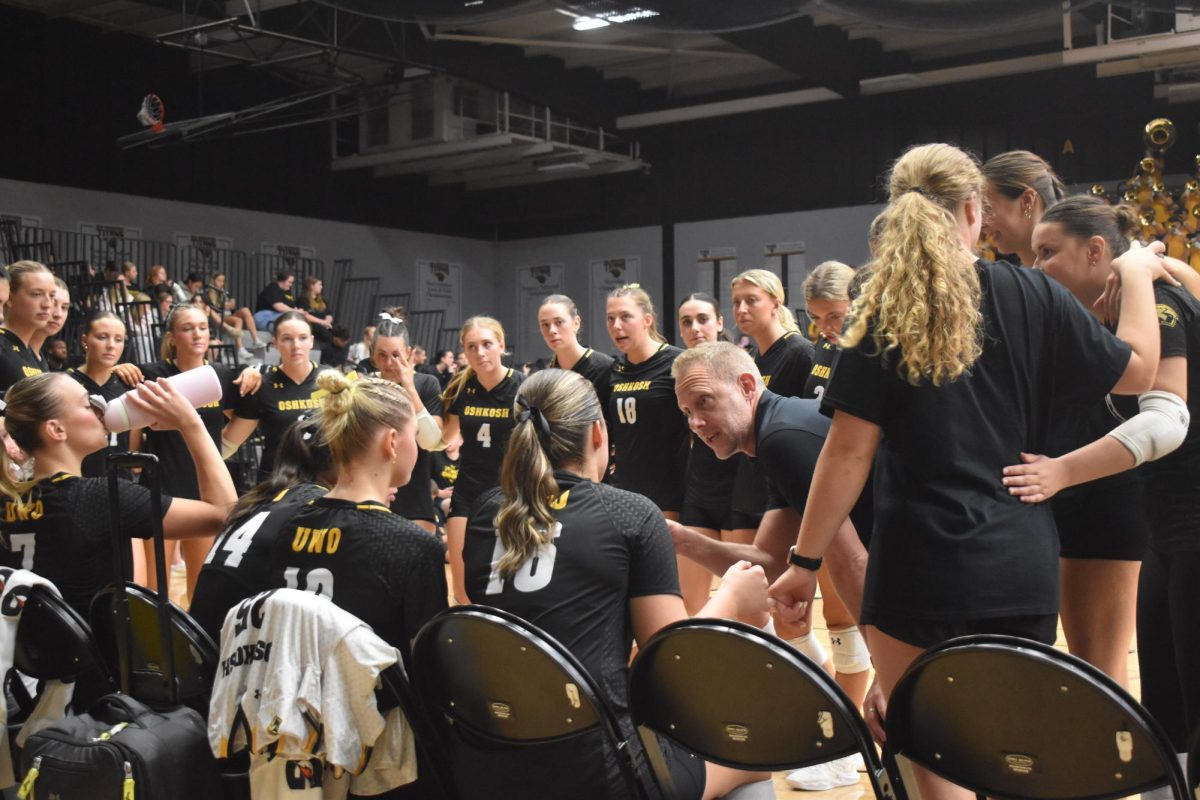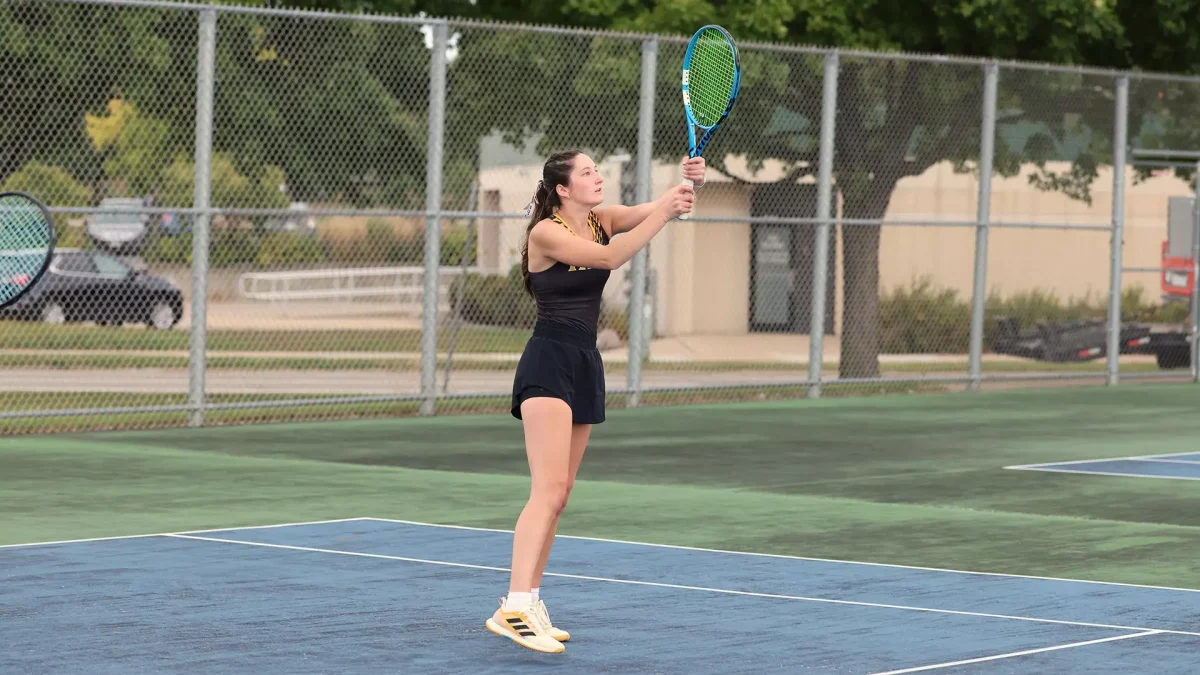By: Morgan Van Lanen and Michael Johrendt
At the University of Wisconsin Oshkosh there are two basketball teams; a men’s and a women’s. However, if you were to ask any of the players, coaches or staff on either one of the two teams, they would all tell you they make up one unit.
During the 2012-13 school year, both basketball programs at UWO hired a new head basketball coach. Pat Juckem, previously the men’s basketball head coach at Coe College in Cedar Rapids, Iowa, became the head coach for the men’s team. The women’s team brought in Brad Fischer, previously the top women’s basketball assistant coach and recruiting coordinator at UW-Parkside.
According to Juckem, he and Fischer created a very strong bond from the beginning, as they both worked to rejuvenate teams that had strong histories but had struggled recently.
“My players have incredible respect for Coach Fischer and his staff and their program,” Juckem said. “I think we share some commonalities in what we look for and what we value. And as a result, the men’s team and the women’s team have a connection.
We are really excited for each other when the other one does well, but we also are competitive. Each program wants to do their part and really become the ‘basketball school’ in the greatest league in the country.”
Since Fischer and Juckem arrived, both basketball programs have seen improvement and success on the court.
Previous women’s head coach Terri Schumacher posted a 7-18 overall record and a ninth-place conference finish at 1-15 in the 2011-12 season. Schumacher stepped down, and Fischer was handed the reigns to the team in 2013. In his first season, the team won 13 more games than the prior season, as their 20-6 overall record and 12-4 conference record earned them second place in the WIAC.
This season marked the third consecutive postseason appearance and the fourth consecutive second-place finish in conference for the women.
According to Fischer, Oshkosh was a team he looked up to when he was coaching at other schools.
“When I was at La Crosse and trying to build the program there, Oshkosh was so successful at the time,” Fischer said. “They were sort of a measuring stick for what we wanted to be at the time, so it was always a place where I knew you could be successful. Opportunity-wise, since I have been here, our administration has been so supportive in allowing us to do things the way we think, not being micromanaged, not being told who to recruit, and not putting any restrictions on how we should do things.”
On the other hand, Ted Van Dellen, who retired after 22 seasons, was the men’s head coach before Juckem stepped in. The year prior to Juckem’s arrival, the Titans overall record was 4-22 and their 0-16 record in conference placed them ninth in the WIAC.
During Juckem’s first season, his team again placed ninth in conference with a record of 2-14. The next two years they took fifth with records of 7-9 and 8-8.
Their greatest success came during the 2015-16 school year when they went 9-5 in conference and took second place. The men went on to win the WIAC Tournament Championship against UW-River Falls and earned an automatic bid to the NCAA Division Tournament.
Juckem stated rebuilding the team has taken a lot of time and effort, but it has been worth it. He believes it all started with doing his homework to recruit players who would be the best fit for the program.
“It’s been a gradual, brick-by-brick approach,” Juckem said. “We deliberately chose not to go with a quick-fix approach. We wanted to work on building a culture. It starts with identifying and evaluating and ultimately recruiting the right kind of players: players who are high-character, good student athletes, committed, are going to be great teammates.”
While the men took slower steps to building their program, the women’s saw immediate success after their new coach stepped in. In his first year at Oshkosh, Fischer lead the Titans to their first appearance in the NCAA tournament since 2000.
Fischer believes his achievements are in part due to his approach to recruiting, something he acquired when he was still an assistant.
“It is still about trying to find the best players that fit and end up in our level, and it is a part of our challenge,” Fischer said. “I have never thought that that was a huge hurdle for us to try and overcome. I think that we have a good [amount of] experience here and that is what our job is: to find the girls that [want] this to be the place they want to be and to show them that this is a good place for them.”
The men’s and women’s successes on the court are not the only things that make them special. Rather, the type of culture the two teams create from the players’ sportsmanship make them stand out among the rest.
Both Juckem and Fischer agree that what they look for in a player is not just his or her skills. Rather, they look for young athletes who are both responsible and respectful, Juckem said.
Senior guard Alex Olson has seen first-hand the progression his team has made over the last four years he attended Oshkosh, he said.
“The culture has changed for both programs over the past few years,” Olson said. “There has been quick success, especially for the girls programs, but also for ours. It’s not just all about what happens on the court; lot of it is the off-the-court stuff. The coaches are recruiting players who have good character, on and off the court.”
Fischer’s coaching history can be traced all the way back to 2000, when he was an assistant at Western Wisconsin Technical College for their 2000-01 campaign. He went down to the high school level for a few seasons at Gale-Ettrick-Trempealeau High School from 2001-03.
Moving back to the college level, Fischer became an assistant coach at his alma mater, La Crosse, from 2003-06, while also completing his master’s degree in 2005. From La Crosse, he joined Division II Parkside and held the role of assistant coach and recruiting coordinator until 2011, when he joined Oshkosh.
Fischer believes going through the coaching process is one of the best ways to reach full potential, as it gave him many different opportunities to learn everything that goes into coaching.
“I think being an assistant coach is a really important part of the journey,” Fischer said. “Everyone wants to be a head coach, and I think people who want to rush through being an assistant to be a head coach miss out on a lot. As an assistant coach, you do not have the same pressure and same responsibility, so if you take advantage of your time and really assess what your head coach is doing, the things you really like, and the things you may not like, it helps build your philosophy.”
Fischer keyed in on a moment in time in which he did not believe he would be a basketball coach, but he took the opportunity he was handed and ran with it.
“Recruiting is really the thing that got me into college coaching,” Fischer said. “When I was at La Crosse, it was not my plan to be a college basketball coach. Coach [Lois] Heeren at La Crosse asked if I would be interested in helping out that first year and that I move from high school to her side. And I enjoyed it, but it still was not a thing that I was going to do. The first year she really let me get out and recruit and try to identify players that we thought could be successful.
That was the first time that I really got into the thinking that this might be something I want to do, because it was a huge challenge.”
Just like Fischer, Juckem never had plans to become a basketball coach. He attended Lawrence University as a psychology major and played on the basketball team there as well.
After changing his major to education and staying at Lawrence for an extra semester to complete his student teaching, he became a graduate assistant for the basketball team. Juckem then took the head coaching job for the men’s basketball team at Manitowoc-Roncalli High School, which he held for three years where he was also a psychology teacher.
He went back to Lawrence University to be the assistant head coach for six years and then moved to Cedar Rapids to coach at Coe College.
“First of all, I really had a great experience at Coe,” Juckem said. “I liked the community, my youngest child was born there, we had our program in a really good spot, but [UWO] and the conference it is in always appealed to me. And I competed against Oshkosh when I was at Lawrence. So I was very familiar with not only the institution, but the quality. I just had great respect for the tradition of the conference and the potential of this university with this basketball program.”
Although basketball has always been a huge part of Juckem’s life, he always makes sure to remind his players that there are other things besides the sport they need to focus on. He believes one of the best things about being an athlete at a Division III school is not only having the opportunity to compete as an athlete, but also being able to join clubs and work internships.
“I always counsel our guys when they are thinking about careers and occupations and what they want to do,” Juckem said. “And I tell them that, if you can wake up every day excited about what you’re doing and not feel like it is a job, then you have a great thing going. And that’s how I feel about coaching in my position. I never wake up dreading going to work. And I feel very fortunate about that.”



